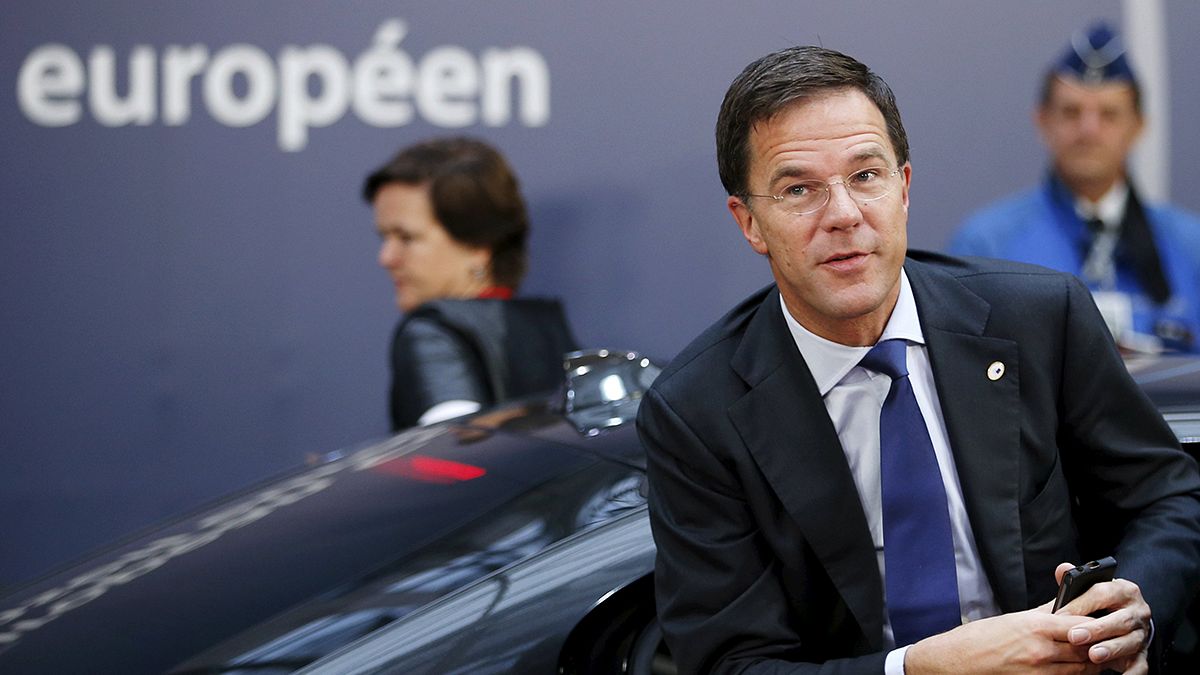The migrant crisis, the economy, terrorism. These are just some of the big issues in Europe, as the Netherlands takes over the rotating
The migrant crisis, the economy, terrorism. These are just some of the big issues in Europe, as the Netherlands takes over the rotating EU presidency.
Euronews reporter Olaf Bruns has spoken to the Dutch Prime Minister Mark Rutte about the challenges that lie ahead during his country’s six year term.
Olaf Bruns, euronews: “Prime Minister, EU leaders have been struggling for months to reach an agreement to relocate 160-thousand refugees which are stranded in Italy and in Greece.
“To this moment, not even 300 of them have been relocated and none of them to the Netherlands. So what can be done to get this relocation scheme back on track under the Dutch presidency?”
Mark Rutte, Dutch Prime Minister: “Well if they would be stranded in Italy and Greece, it would be relatively easy to get the scheme going. The problem is that they are not stranded, they come into Greece and then they and go on and continue in the West Balkans, comes through Slovenia, Austria into mostly Germany or Sweden and sometimes the Netherlands and Belgium.
“So what we need to do is to build reception capacity and the hot spots in Greece, Italy is a bit, is one or two steps further now, but still a lot more needs to be done there and only when they have been established, you can relocate people from these hot spots over the rest of the European Union.”
euronews: “Prime Minister, Sweden and Denmark are re-establishing border controls, other countries have done so before, others might be follow.
“It seems that the whole existence of the Schengen zone is under threat. Now, you have proposed, in November, to cut down the members of the Schengen zone to five, what is the plan now to save the Schengen zone?”
Mark Rutte, Dutch Prime Minister: “Well there is no Dutch proposal as you stated it. What we have said is that we have to think about a situation where the influx of refugees stays at a high level it is currently, even now in winter, with the risk of a spike again in the spring, and then you have to think about what are the alternatives to what ifs, and I cannot go into the what ifs are I am thinking of.
“All energy now is focused on getting the deal with Turkey working, on building the hot spot and reception capacity in Greece and Italy, so that will be all of the focus over the next two months.”
euronews: “In April there will be a referendum in the Netherlands on the EU-Ukraine Association Treaty, how would you deal with a negative outcome which is likely to happen?”
Mark Rutte, Dutch Prime Minister: “Well we are of course working on a positive outcome and this is not a referendum the Dutch government called, there is a law in the Netherlands where so many people, through signatures, can force a referendum, a consultative referendum on a particular issue. This is what happened here.
“And we will make it clear and explain to the Dutch public why we put our signature under this treaty, its because its in the Dutch interest. To one, have a free trade agreement with Ukraine, we are a trading nation, we can earn a lot of money when Ukraine is more successful than it is currently, it’s in the Dutch interest.
“And secondly, because it is all about building the state, the rule of law, implementing all of the human rights, well the things we have fought for in the European Union.
“Some of the people against it think it is a first step to membership, it is not. We have these association agreements with countries in middle America, in the Middle East, and they are not applying for membership. Maybe for the Eurovision song contest, but not for the European Union.”
euronews: “But still, if there is a negative outcome, how will the government react?”
Mark Rutte, Dutch Prime Minister: “Well formally then we have to take a position because this is a consultative referendum, then the law requires the government to take a position and put this to the Dutch parliament.
“How we will deal with the outcome of the referendum and that we will decide after the 6th of April, after the referendum, and of course your question assumes there will be a negative outcome and I will put all of my energy in coming to a positive outcome.”
